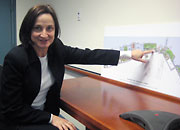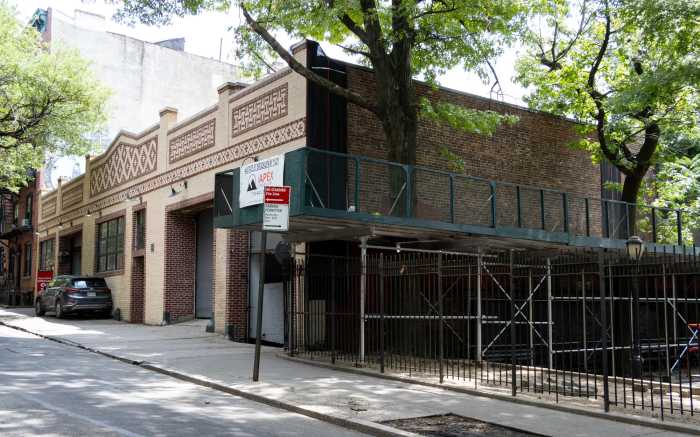The cost to construct — and operate — the troubled Brooklyn Bridge Park development has gone up again, but its planners say that the higher maintenance cost is actually a cut!
The price tag for the 1.3-mile strip of waterfront housing and open space along the Brooklyn Heights and DUMBO waterfront is now $347 million — up from an original budget of $150 million in 2002. And the cost for annual upkeep inched to $16.1 million, up from a projected $15.2 million, according to sources briefed after a meeting on Monday of the project’s planners.
But the Brooklyn Bridge Park Development Corporation quickly denied that the upkeep costs have risen.
“They have not gone up,” spokeswoman Lisa Willner said via e-mail. In fact, she said the costs are actually going down: “Taking inflation into account, the $15.2 million … is equal to $17.2 million in 2008 dollars.”
She did not comment on the soaring construction costs of the development.
The new figures come to light just as development officials were forced to admit that their principal sources of revenue for maintenance — a hotel and roughly 800 units of luxury housing inside the park’s footprint — had been postponed.
Additionally, the “park” now consists only of passive recreation areas at Pier 1 at the foot of Old Fulton Street and Pier 6 at the foot of Atlantic Avenue. Officials vow that those areas will be finished by the end of the year.
On the eve of a public hearing set for Thursday night, reaction to the new cost and maintenance figures was muted, even from one of the park project’s critics, state Sen. Daniel Squadron (D–Carroll Gardens).
“I absolutely have concerns about these numbers, but this is the moment to get them out and into the hands of the community,” the first-term lawmaker said.
The Brooklyn Bridge Park Development Corporation, the state agency building the lawns, playgrounds and playing fields on piers and uplands, has strictly guarded the park’s finances since revealing last May that the price had topped $300 million.
“I hope this is the beginning of continued transparency and openness,” Squadron said.
The project’s finances are steeped in controversy because of the unusual arrangement that permits luxury housing and a hotel inside the “park” as a way of generating revenue for maintenance of the grounds.
The private elements — 1,210 apartments and a 225-bed hotel, plus retail space — are supposed to contribute fees to cover the parkland’s yearly budget instead of paying normal taxes.
That revenue stream is dry except for 449 apartments that are already built at One Brooklyn Bridge Park, a former Jehovah’s Witness complex on Furman Street. State officials say that the building will contribute $3 million annually — “which will help us to maintain the park for several years.”
























